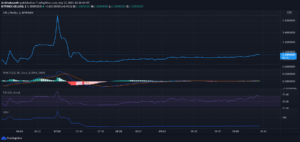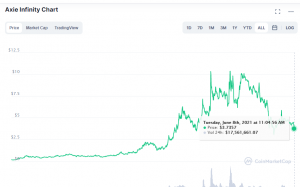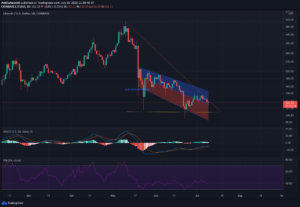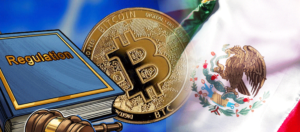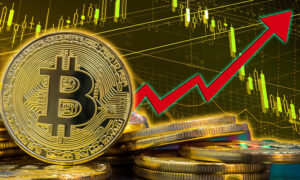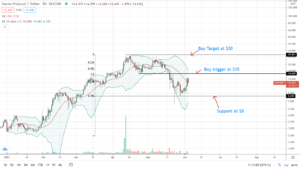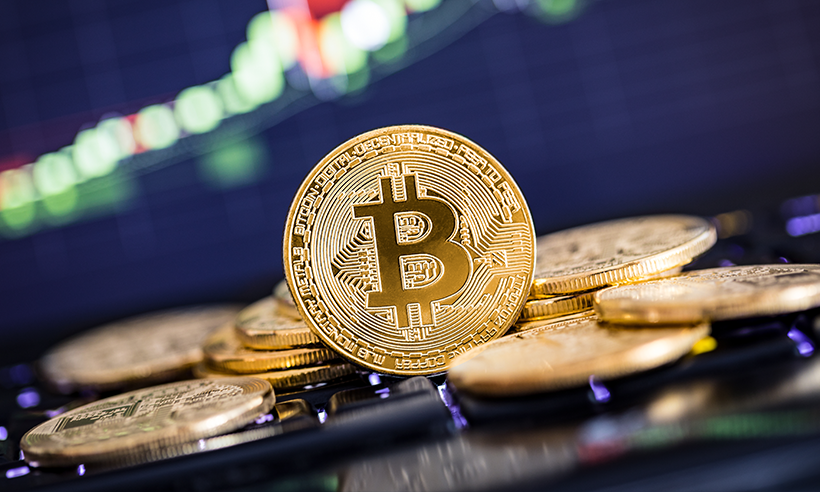
For the last 50 years or so, oil has been traded exclusively in dollars. Oil-exporting countries receive dollars for their exports, making their economies dependent on the value of the American currency. History Of The Petro-Dollar System The petro-dollar system has its roots in the historical gold standard system. After the Second World War, with most of Europe in disarray, the United States held the bulk of the world’s gold supply. In a bid to both rejuvenate the global economy and position itself as a world leader, the U.S. agreed to redeem any dollar for its value in gold if other nations pegged their own currencies to the American dollar. At the 1944 Bretton Woods conference, 44 allied nations signed on to the deal offered by the Americans and formally established the U.S. dollar as the world’s reserve currency. But in 1971, with the U.S. suffering from high inflation and a stagnating economy, many of the nations that had signed up to the gold standard asked to redeem their dollars for gold. After the run on American gold, President Richard Nixon removed the dollar from the gold standard system in order to protect whatever remained in the country’s gold reserve. Almost a decade later, the United States entered into a pivotal economic partnership with the Kingdom of Saudi Arabia, where they agreed to use the dollar for oil contracts. With Saudi Arabia becoming the largest exporter of oil in the world, the influence of the dollar in global trade has grown by leaps and bounds. The United States, in turn, used the dollar’s power and influence in the hugely important petroleum industry to enforce its foreign policy. Many nations that have found themselves on the receiving end of American sanctions have been unable to fight back, fearing the collapse of the petro-dollar system and, with it, the global economy. Russia And China Seeking Petro-Dollar Alternatives Recently, major economic powers like Russia and China have made calls to replace the dollar as the global reserve. However, it was felt that there were no good alternatives. Now, there is a growing feeling among analysts that Bitcoin could be the neutral reserve asset opponents of the dollar system have been looking for. Russia’s invasion of Ukraine and the subsequent sanctions and embargoes placed on it by the United States and its NATO allies have forced Russia to rethink how it sells its oil and gas and how it organizes its national wealth fund. US.-led sanctions caused the Russian ruble to lose more than 20% of its value in just a few short weeks. The sanctions also made it impossible for Russia to access its dollar reserves, worth an estimated $185 billion, to shore up its economy and its ailing currency. The world’s leading producer of natural gas and second-largest exporter of oil has been experiencing difficulties selling its products because of the petro-dollar system. But recent events suggest that Russia is thinking of taking advantage of the statelessness of the cryptocurrency system to circumvent restrictions placed on its oil-exporting business. Pavel Zavalny, chairman of the State Duma Committee on Energy, recently suggested that countries like China and Turkey, which Russia considers friendly, could be allowed to pay for Russian oil and gas using their own currencies. More interestingly, Zavalny also mentioned that countries friendly to Russia could also make oil payments using Bitcoin. This new direction could see Bitcoin play a prominent role in the global economy and signal the loosening of the dollar’s vice-like grip on international trade. What was once merely a hopeful concept could become a practical application with major geopolitical ramifications. Australian Oil Retailer Set To Accept Bitcoin Payments Meanwhile, in the land down under, an oil marketer’s decision to accept Bitcoin payments is also shining a spotlight on the growing importance of BTC in the petroleum industry. On The Run (OTR), one of Australia’s largest oil retailers is allowing its customers to use Bitcoin to pay for gasoline. The company is partnering with Crypto.com, a Singapore-based cryptocurrency trading solution, to roll out processing terminals in more than 170 gas outlets owned by OTR to facilitate BTC payments. This move has been hailed by industry observers as further proof of Bitcoin’s growing importance in the energy sector. Referring to OTR’s decision, UK-based digital assets analyst Marcus Sotiriou, said: “This adds more weight to the idea of Bitcoin becoming a petro-asset after Putin recently allowed friendly countries to pay for oil in Bitcoin.” Bitcoin Miners Use Natural Gas To Power Mining Operations Bitcoin’s newfound association with the oil industry is not limited to being a medium of exchange alone. Bitcoin miners are also taking advantage of “stranded” natural gas to power their mining activities. Mining BTC is an energy-intensive process, and environmentalists have protested against the huge carbon footprint created by Bitcoin mining. It is estimated … Continued
The post Is Bitcoin Becoming A Petro-Asset? New Move Could Send Prices To The Moon first appeared on Cryptoknowmics-Crypto News and Media Platform.
The post Is Bitcoin Becoming A Petro-Asset? New Move Could Send Prices To The Moon appeared first on Cryptoknowmics-Crypto News and Media Platform.
- Coinsmart. Europe’s Best Bitcoin and Crypto Exchange.
- Platoblockchain. Web3 Metaverse Intelligence. Knowledge Amplified. FREE ACCESS.
- CryptoHawk. Altcoin Radar. Free Trial.
- Source: https://www.cryptoknowmics.com/news/is-bitcoin-becoming-a-petro-asset-new-move-could-send-prices-to-the-moon/?utm_source=rss&utm_medium=rss&utm_campaign=is-bitcoin-becoming-a-petro-asset-new-move-could-send-prices-to-the-moon
- "
- access
- activities
- ADvantage
- Allowing
- American
- Americans
- among
- analyst
- Application
- asset
- Assets
- Association
- become
- being
- Billion
- Bitcoin
- Bitcoin mining
- Bitcoin Payments
- Block
- BTC
- business
- carbon
- caused
- chairman
- China
- company
- concept
- Conference
- considers
- contracts
- could
- countries
- created
- crypto
- Crypto.com
- cryptocurrency
- cryptocurrency trading
- currencies
- Currency
- Customers
- deal
- decade
- digital
- Digital Assets
- Display
- Dollar
- dollars
- down
- Economic
- economy
- energy
- entered
- established
- estimated
- Europe
- events
- exchange
- First
- Footprint
- found
- fund
- further
- GAS
- Global
- Global economy
- Gold
- good
- Growing
- High
- historical
- history
- How
- HTTPS
- huge
- idea
- importance
- important
- impossible
- industry
- inflation
- influence
- International
- IT
- itself
- Kingdom
- largest
- leader
- leading
- Limited
- looking
- made
- major
- Making
- Media
- medium
- mentioned
- Miners
- Mining
- Moon
- more
- most
- move
- National
- Natural
- Natural Gas
- news
- Oil
- Operations
- order
- Other
- own
- owned
- Partnership
- Pay
- payments
- pivotal
- Play
- policy
- position
- power
- president
- process
- processing
- producer
- Products
- prominent
- proof
- protect
- receive
- remained
- restrictions
- retailer
- retailers
- Roll
- Run
- Russia
- Said
- Sanctions
- Saudi Arabia
- Second world war
- sector
- seeking
- set
- Short
- So
- solution
- Spotlight
- standard
- State
- States
- supply
- system
- the world
- Thinking
- trade
- Trading
- Turkey
- u.s.
- Ukraine
- United
- United States
- us
- use
- value
- war
- Wealth
- What
- world
- world’s
- worth
- years



